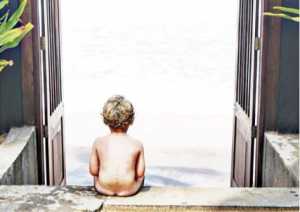Whoever thought #toiletpaper would be the highest trending thing on twitter! Anyone curious as to why and what can we do to neutralise the panic?
Social media opinion seems to be expressing that our society is split between two schools of thinking, the panic thinkers and the fact thinkers in the face of the Corona Virus. The panic thinkers are buying toilet paper and the fact thinkers are recommending we wash our hands with greater consciousness.
Back in the 14th century when the black death swept through the medieval globe the panic thinkers looked to superstition and tied chickens around necks, drank deadly potions, sniffed herbs or disastrously “bled” the carriers inadvertently speeding up the spread. The fact thinkers boarded-up houses of carriers and quarantined for 40 days those within. Ultimately quarantine and careful hygiene were the only effective choices for containment, evidenced by the cities with the highest rates of survival.
Now let’s look at today’s school of panic thinking. We’re witnessing this in droves in the example of stockpiling on items such as toilet paper, which, let’s face it, is not the first thing you think of when considering survival necessities, nor is it anti-bacterial for prevention of a virus.
What IS a fact is we have alternative methods of butt-wiping comfort – if you’ve ever travelled in Asia you may have discovered in many countries and certain bathrooms you can be hard-pressed to find a square to spare whilst the handy hose is everywhere.
The second group are the school of fact thinkers, espousing statistics and sensible prevention methods that capably provide reasonable data as to why we can probably maintain human dignity as the shelves are re-stocked instead of exhibiting frenzied panic or resorting to sorbent-induced violence.
It may be true that there’s value in some panic IF it’s related to reasonable preparation, and it’s also true that there’s value in facts as long as a relative openness to possibilities and some preparation occurs alongside.
The question I have for the panic thinkers rushing to the supermarkets at first light to empty shelves is…. if quarantine and hygiene have ancient evidence of success, how are you distinguishing your provision of toilet paper as more important than exposing yourself to unknown bacteria on the handles of those shopping trolleys you’re clutching with your bare hands for extended periods….. or if the people you’re shoving and jostling in close proximity are or aren’t carriers.
You are MORE likely to expose yourself to a virus whilst buying toilet paper in a public place than you would be staying at home and giving your undercarriage a waterslide.
If you want to be able to enjoy your life in the midst of the unknown epidemic of the Corona Virus, it’s probably a good time to regain your control over HOW you are doing your thinking.
Fear itself is a survival instinct preparing the body’s defence mechanisms for action. Your amygdala, or the fear centre of the brain, can become hyperactive when your sympathetic nervous system has been revved up by overwhelming fear, and your parasympathetic nervous system is somehow unable to do its part in stabilising your nervous system.
Without stability, your defence mechanisms can malfunction and all of a sudden threats are magnified and excessively exaggerated and here’s where the panic kicks in.
So your physiology is already built to calm you the F*&K down it’s whether you make a decision to keep choosing to run fear or to choose to use it to look at your options.
Add to fear the herd mentality. Herd mentality is where individual free-will becomes influenced into a collective emotionally driven behaviour, conjoining greed and fear. The result = unheard of frenzied toilet paper buying that no one can actually understand but follows suit anyway. And so it propagates and the herd grows.
Here’s what we don’t always know or recognise:
Fear and panic are essentially driven by a perceived loss of control and an inability to accept uncertainty.
When it feels like we are in a position where we do not have control we seek other places to alleviate the uncertainty and sometimes it’s easiest to follow the pack because the majority of people can’t be wrong right? They must know something I don’t…? Now you can believe you have something you “know” and at least get some relief – you’re prepared and in control, which is minimising the threat in your mind.
Cognitive processing is easily distorted, and cognitive distortions are where we hear and feel a negative thought and accept it as truth even when evidence or rationale should at least allow for other possibilities to stabilise our fear.
So when panic sets in and we need to help our nervous system to balance out, where do you start?
Well, this is where the emotion in your conscious mind needs to shut the hell up and it’s time to consider the facts specific to YOU. Time to turn the telly off, it’s not relevant to changing our brain processes no matter what the content. If you can figure this part out first, the media hype won’t lobotomise your nervous system next time you’re exposed to it.
It’s okay to do the “What IF” as long as it’s countered with the “What IS” so you can act from that viewpoint. Facts will allow you to determine what you can and can’t control and discern other possibilities and allow you to accept the uncertainty.
This is the only question you need to be asking yourself:
When it comes to the Corona Virus and pursuant social panic impacts, what can and can’t you control?
This will look different to different people. Here are a few scenarios as an example.
Control Fallacy #1 – Can I control its global spread?
Fact:
Probably not without some sort of international martial law and global lock-down or other dictatorial compliance methods most of us will have no influence over.
So, what can you control?
The personal control of yours and your families personal hygiene and your decisions on where and how you exist and where you go in society using qualified and evidenced facts as your guide to best practices.
Control Fallacy #2 – Can you control accessibility to hygiene products?
Fact to Accept:
Probably not whilst the panic frenzy is in full swing, although the sensibilities of our grocery giants and manufacturers may assist with this.
So what can you control?
Has anyone asked our indigenous benefactors whose civilisation and society has survived for some 60,000 years how their ancestors managed to exist without toilet paper and hand sanitiser? So what are the other possibilities?
These might look different to everyone but our forward-thinking climate changers have many chemical-free and natural unpackaged alternatives to consider.
Disclaimer, I don’t promote these items with any guarantee or chemistry expertise and you may agree or disagree or substitute at your discretion – the point is there ARE possibilities beyond what the collective emotional behaviours are trying to tell us to consider when the shelves don’t have your typical go-to’s.
If you can’t purchase toilet paper or hand sanitiser, what CAN you do, what are the OTHER possibilities we can’t see if we’re too traumatised by the empty shelves?
- Vinegar – Whilst not 100% effective, our old friend white vinegar can act as an antibacterial disinfectant thanks to its high acidity
- Vodka – Dual purpose! Most store-bought hand sanitisers contain 60 percent alcohol. 100 proof vodka therefore I wonder….? (May also be handy to grab some lime juice and soda..)
- Lemons – okay they aren’t going to get the job done to the same level as their lemon smelling chemical cousins… however, it has been written by people much smarter than me that they can still help reduce bacteria
- Essential Oils – Add it to your vodka (unless drinking!), did you know tea tree oil, citronella, geranium, lemongrass, orange and patchouli oils have bacteria-fighting properties?
- Plants – The big one here – what to do about toilet paper? Neither toilet paper or water have anti-bacterial properties so if we bring this back to a butt-wiping objective only, here are two soft-leafed natural plants that have been suggested can do the job effectively if you’d rather wipe than slide…
- Brachyglottis Repanda (also known as Bushman’s Friend)
- Plectranthus Barbatus (literally referred to as Kikuyu Toilet Paper in Kenya)
These might not be appealing or they might, all you need to take from these examples is that there ARE possibilities. All we have done here is allow you to regain control by accepting what you can’t change or control and producing actions on what you can.
Kids and teenagers especially can be really susceptible to herd mentality and catastrophising. Social media engagement with peers is anxiety-inducing enough for them so it’s really important that us adults are great role models to help them minimise and balance fear and look to new things.
Feeling fear is a great survival tool and very necessary. What are the steps to best use?
Step 1: Feel fear, acknowledge its presence as purposeful
Step 2: Ask yourself what’s not and what is within your control
Step 3: Look outside the herd for other possibilities for action
Step 4: Act within your possibilities knowing you’ve done what you can with what you have
Step 5: Enjoy your life – with or without toilet paper
To survive successfully is to decide if you will let fear control you, or if you will act within your control.
Personally, I’m sitting on Hamilton Island with my best friend. A long-awaited holiday. 100km/h winds mean we can’t go out, planes aren’t landing and interestingly our topics of conversation are not whether our heads might cave in from a wayward tree (even though this is a real possibility), rather how we love and want to enjoy every minute with our families, can best support and assist survivors of bushfires, mitigate risk in our businesses for our teams (before our own financial interests) and what we might best use our voice for for parliamentary consideration in containing a life-threatening virus or panic-driven financial crisis.
What potential cyclone?
Isn’t it interesting how our brain is capable of compartmentalising and deciphering the biggest risks? In the same way, it can choose solutions over panic and use fear to drive us forward to successful survival. it’s up to you.


